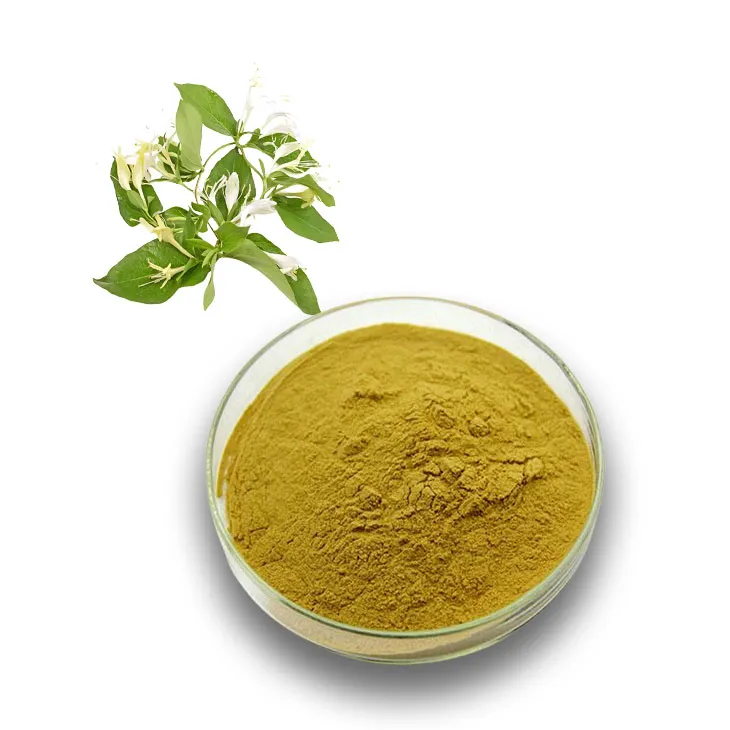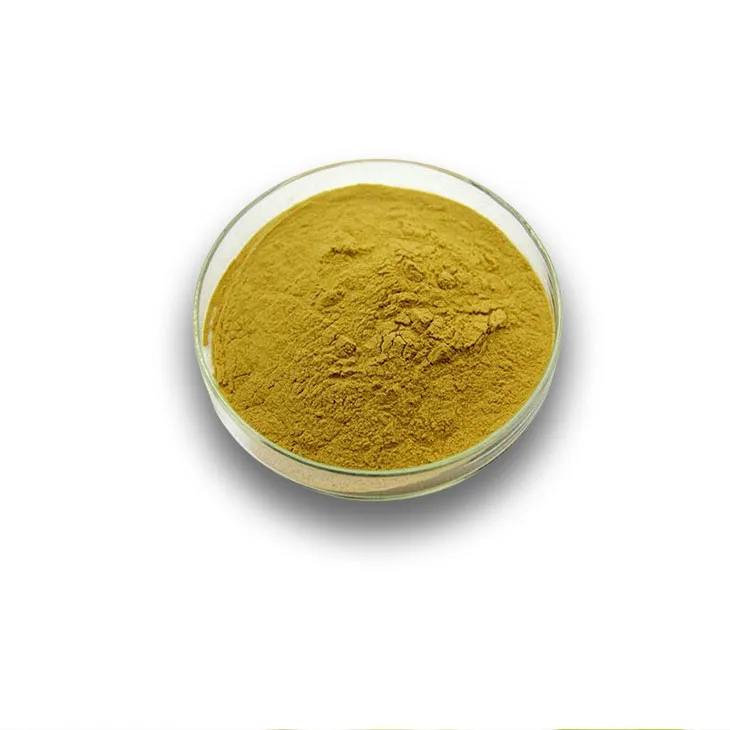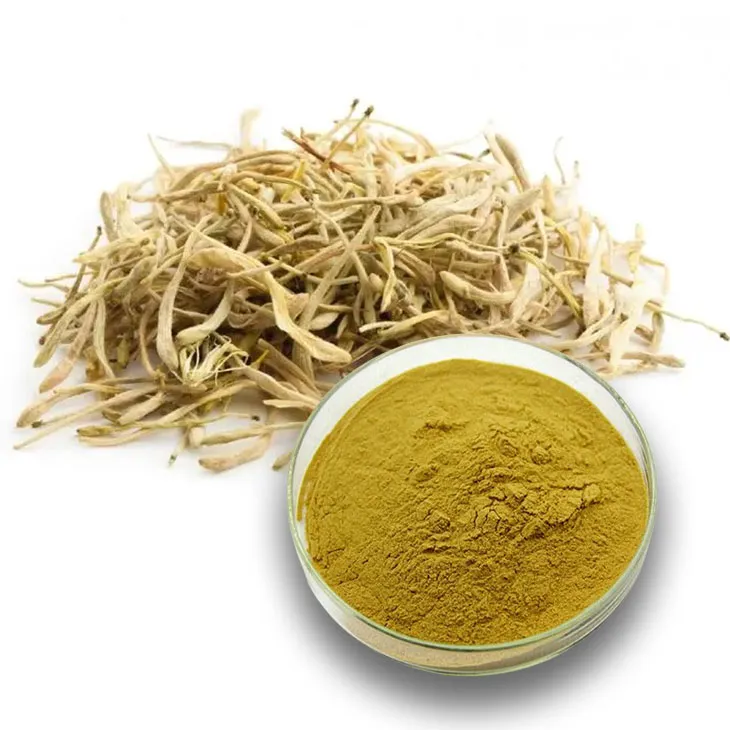- 0086-571-85302990
- sales@greenskybio.com
Purchase honeysuckle pollen in batches in an economical and efficient way.
2024-12-13

1. Introduction
Honeysuckle Pollen has gained significant attention in various industries, such as the food and pharmaceutical sectors. Bulk purchasing of Honeysuckle Pollen in an economic - efficient manner is not only crucial for businesses to control costs but also to ensure the quality of their end products. However, this process is fraught with challenges that need to be carefully navigated.

2. The Importance of Quality
The quality of Honeysuckle Pollen is the cornerstone of any successful bulk purchase. High - quality pollen offers several advantages:
2.1 Purity
Pure honeysuckle pollen ensures that there are no contaminants or impurities that could affect its efficacy or safety. For example, in the food industry, contaminated pollen could pose a health risk to consumers. In the pharmaceutical industry, it could lead to inaccurate results in drug development or production.
2.2 Nutritional and Medicinal Value
Honeysuckle pollen is rich in nutrients such as proteins, vitamins, and minerals. High - quality pollen retains these valuable components, making it more desirable for applications in health supplements and traditional medicine.
2.3 Shelf - Life
Good - quality pollen generally has a longer shelf - life. This is important for inventory management, as it allows for longer storage periods without significant degradation of the product.

3. Establishing Quality Control Standards
To ensure the quality of honeysuckle pollen during bulk purchase, strict quality control standards must be implemented:
3.1 Source Verification
- Trace the origin of the pollen. Determine whether it comes from reliable growers or suppliers. For instance, some regions are known for their high - quality honeysuckle cultivation, and sourcing from these areas can be more likely to result in better - quality pollen. - Check for any certifications or accreditations that the suppliers may have. These could include organic certifications, which are highly valued in the food and health - related industries.
3.2 Physical and Chemical Analysis
- Conduct physical inspections. This includes examining the color, texture, and particle size of the pollen. Abnormalities in these physical characteristics could indicate quality issues. - Perform chemical analysis to determine the nutrient content, moisture level, and the presence of any harmful substances. For example, a high moisture level could lead to mold growth during storage, reducing the quality of the pollen.
3.3 Sampling and Testing Protocols
- Develop proper sampling methods. Ensure that the samples are representative of the entire batch of pollen. A random and comprehensive sampling approach is often recommended. - Set up testing protocols in accredited laboratories. Regular testing during the purchase process helps to catch any quality issues early on.

4. Exploring Different Purchasing Channels
Another key aspect of economical and efficient bulk purchasing of honeysuckle pollen is exploring various purchasing channels. Each channel has its own pros and cons:
4.1 Direct Contact with Growers
- Advantages:
- Potentially lower cost as there are no intermediaries involved. Growers may offer more competitive prices to sell their products directly.
- Better quality control. Buyers can have more direct influence on the cultivation and harvesting methods, ensuring the production of high - quality pollen.
- Customized orders are more likely to be accommodated. For example, specific harvesting times or packaging requirements can be more easily arranged.
- Limited supply capacity in some cases. Small - scale growers may not be able to meet large - scale bulk purchase requirements.
- Higher transaction costs in terms of communication and logistics coordination. Dealing directly with growers may require more effort in terms of arranging transportation and handling paperwork.
4.2 Participation in Agricultural Cooperatives
- Advantages:
- Access to a larger pool of suppliers. Agricultural cooperatives usually consist of multiple growers, which can increase the supply volume and variety.
- Shared resources and knowledge. Cooperatives may offer services such as quality control support, packaging facilities, and market information sharing, which can benefit the buyers.
- More stable supply. The collective nature of cooperatives can help to ensure a more consistent supply of honeysuckle pollen compared to individual growers.
- Decision - making may be more complex as it involves multiple parties within the cooperative. This could lead to delays in the purchasing process.
- There may be some restrictions or regulations within the cooperative that could limit the flexibility of the purchase. For example, standard packaging or pricing models may be imposed.
4.3 Using Online Trading Platforms
- Advantages:
- Wide range of options. Online platforms can connect buyers with numerous suppliers from different regions, providing a large selection of honeysuckle pollen products.
- Price comparison. It is easy to compare prices and product specifications across different suppliers, enabling buyers to find the most cost - effective options.
- Convenience. The purchasing process can be completed online, saving time and reducing the need for extensive travel to visit suppliers in person.
- Quality assurance can be more challenging. It may be difficult to verify the quality of the pollen remotely, relying solely on the information provided on the platform.
- There may be potential fraud or misrepresentation. Some unscrupulous suppliers may post false information about their products on the platform.

5. Realizing Economies of Scale
Economies of scale play a significant role in making bulk purchases of honeysuckle pollen economical - efficient.
5.1 Quantity Discounts
- Suppliers are often willing to offer lower unit prices when large quantities are purchased. For example, a supplier may reduce the price per kilogram of honeysuckle pollen by 10% for orders exceeding 1000 kilograms. - By taking advantage of quantity discounts, buyers can significantly reduce their overall purchase cost.
5.2 Cost - Sharing in Logistics
- In bulk purchases, the cost of logistics such as transportation and storage can be spread over a larger number of units. For instance, the cost of shipping a large batch of honeysuckle pollen may be relatively lower per unit compared to shipping smaller quantities. - Shared warehousing facilities can also reduce the cost per unit of storage. This is especially beneficial for businesses with limited storage space.
6. Considering Logistics
When making a bulk purchase of honeysuckle pollen, logistics is an important factor that needs to be factored into the overall cost to ensure economic - efficiency.
6.1 Packaging
- The type of packaging used can affect both the cost and the quality of the pollen. High - quality, air - tight packaging can prevent moisture absorption and contamination, but it may be more expensive. - However, investing in good packaging can pay off in the long run by prolonging the shelf - life of the pollen and reducing the risk of spoilage.
6.2 Delivery
- Selecting the right delivery method is crucial. Options may include ground transportation, air freight, or sea freight, depending on the quantity, urgency, and cost considerations. - For example, air freight is faster but more expensive, while sea freight is slower but more cost - effective for large - scale shipments. - Delivery schedules also need to be coordinated to ensure that the pollen arrives at the destination in a timely manner without incurring additional storage costs.
7. Conclusion
In conclusion, bulk purchasing of honeysuckle pollen in an economic - efficient manner requires a comprehensive approach. It involves ensuring the quality of the pollen through strict quality control standards, exploring different purchasing channels to find the best balance between cost and quality, realizing economies of scale, and carefully considering logistics. By taking these factors into account, businesses can optimize their bulk purchase of honeysuckle pollen, leading to cost savings and the acquisition of high - quality products.
FAQ:
Question 1: How can we ensure the quality of honeysuckle pollen when purchasing in bulk?
To ensure the quality of honeysuckle pollen when purchasing in bulk, we can establish strict quality control standards. This includes checking for purity and high - quality characteristics of the pollen during the purchase process.
Question 2: What are the advantages of different purchasing channels for honeysuckle pollen?
Direct contact with growers may offer fresher pollen and potentially better prices as it cuts out middlemen. Agricultural cooperatives can provide a reliable source and may have collective quality control. Online trading platforms offer convenience and a wide range of options, but one needs to be cautious about authenticity. Each channel has its own set of advantages in terms of cost, quality, and availability.
Question 3: How can economies of scale be achieved in bulk purchasing of honeysuckle pollen?
Economies of scale in bulk purchasing of honeysuckle pollen can be achieved by buying large quantities at once. This can lead to lower per - unit costs, such as getting a better price per unit of pollen from the supplier due to the large volume of the order.
Question 4: What should be considered in logistics for economic - efficient bulk purchase of honeysuckle pollen?
When considering logistics for economic - efficient bulk purchase of honeysuckle pollen, factors such as packaging to protect the pollen quality during transit and delivery costs should be factored into the overall cost. Choosing appropriate packaging materials and efficient delivery methods can help minimize costs while ensuring the pollen arrives in good condition.
Question 5: What are the risks associated with different purchasing channels for honeysuckle pollen?
When directly contacting growers, there may be a risk of inconsistent supply or lack of legal protection in case of disputes. Agricultural cooperatives might have some bureaucratic processes that could delay the purchase. Online trading platforms pose risks such as the possibility of fraud or receiving sub - standard products, so careful vetting of sellers is required.
Related literature
- The Quality and Market Value of Honeysuckle Pollen"
- "Efficient Purchasing Strategies in the Honeysuckle Pollen Industry"
- "Bulk Purchasing and Logistics in Horticultural Products: Focus on Honeysuckle Pollen"
- ▶ Hesperidin
- ▶ Citrus Bioflavonoids
- ▶ Plant Extract
- ▶ lycopene
- ▶ Diosmin
- ▶ Grape seed extract
- ▶ Sea buckthorn Juice Powder
- ▶ Fruit Juice Powder
- ▶ Hops Extract
- ▶ Artichoke Extract
- ▶ Mushroom extract
- ▶ Astaxanthin
- ▶ Green Tea Extract
- ▶ Curcumin
- ▶ Horse Chestnut Extract
- ▶ Other Product
- ▶ Boswellia Serrata Extract
- ▶ Resveratrol
- ▶ Marigold Extract
- ▶ Grape Leaf Extract
- ▶ New Product
- ▶ Aminolevulinic acid
- ▶ Cranberry Extract
- ▶ Red Yeast Rice
- ▶ Red Wine Extract
-
Grape Seed Extract
2024-12-13
-
Andrographis Paniculata Extract Powder
2024-12-13
-
Chia Seed Powder
2024-12-13
-
Tormentil Extract
2024-12-13
-
Rose Hip Extract
2024-12-13
-
Coix Seed Extract
2024-12-13
-
Curcumin
2024-12-13
-
Rosemary extract
2024-12-13
-
Cranberry Extract
2024-12-13
-
Epimedium extract powder
2024-12-13





















